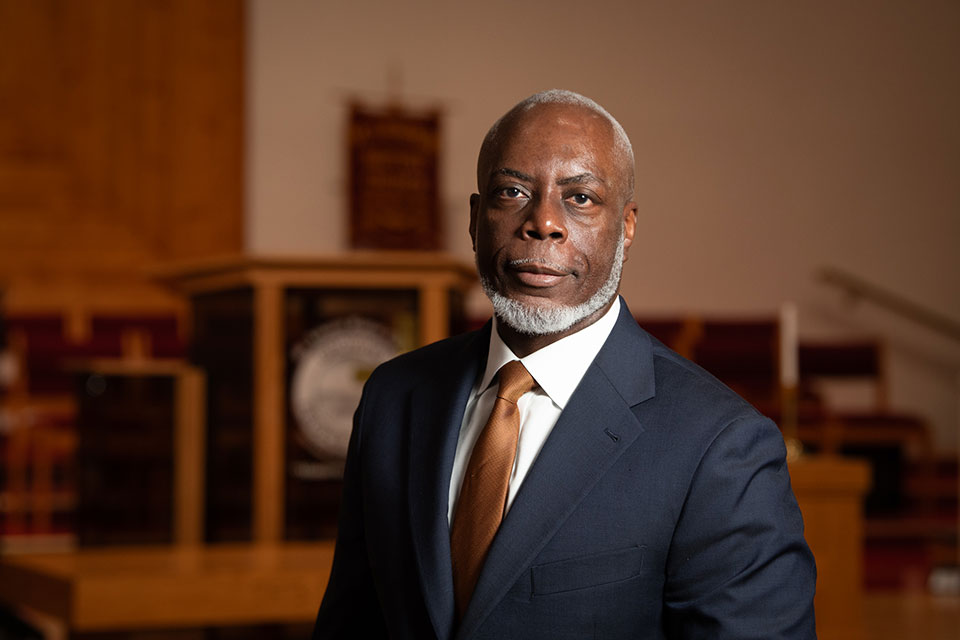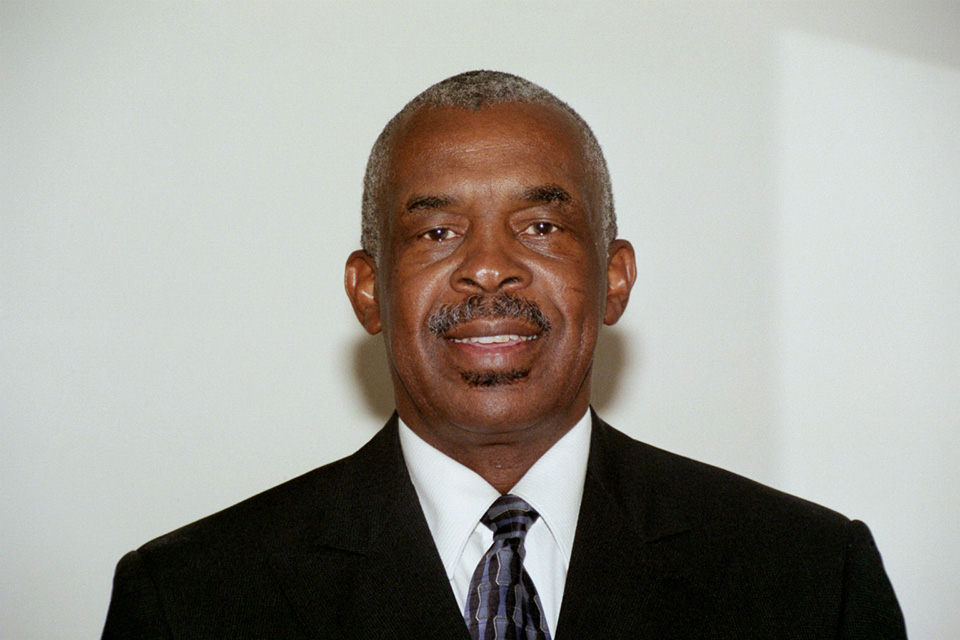Black History Month Forum Spotlights Long-Time SOP Board of Visitors Member
Alex Taylor, BSP ’76, RPh, speaks about his experiences as a student at the School of Pharmacy and as a member of the National Pharmaceutical Association.
By Malissa Carroll
March 7, 2013
On Monday, Feb. 25, the Student National Pharmaceutical Association (SNPhA) at the University of Maryland School of Pharmacy hosted its annual Black History Month Forum to celebrate the contributions of African-Americans to the pharmacy profession. The speaker for this year’s forum was Alex Taylor, BSP ’76, RPh, division chief of clinical services at Maryland Medicaid and a member of the School’s Board of Visitors.
“The Black History Month Forum is one of the great forums that SNPhA hosts every year,” says Jason Noel, PharmD, BCPP, an associate professor of pharmacy practice and science who introduced Taylor to the audience. “This year, we were pleased to welcome Mr. Taylor, an alumnus of the School who has experience in all practice settings. His experiences have helped him acquire a wealth of knowledge from which our students can greatly benefit.”
The School of Pharmacy graduated its first African-American student in 1958. Taylor enrolled in the School in 1973, and worked to track the number of minority students who graduated from the School during the time he was there.
“When I graduated in 1976, there were four African-American students in my class, which made a total of 11 African-Americans who had graduated from the School since 1958,” said Taylor. “Since that time, I’m proud to say that those numbers have grown quite a bit. The School has done a remarkable job recruiting individuals from all races and ethnicities around the world.”
The presentation opened with a brief history of the National Pharmaceutical Association (NPhA), an organization in which Taylor has been involved throughout his career. Established by Chauncey Cooper, PhC, in 1947, the NPhA addressed issues of importance to African-American pharmacists at the time, including prescription pricing, personnel problems, and interprofessional relationships. Many of these issues remain relevant to all pharmacists today.
As a student, Taylor became involved with SNPhA, the student group affiliated with NPhA. He traveled to Atlanta, Ga., with students from the University of Maryland and Howard University to attend one of the group’s annual conferences. It was at this conference that he was nominated for president-elect of SNPhA. To his surprise, he was elected even though the School of Pharmacy did not have an established SNPhA chapter at the time.
“When I returned to the School, I met with Dr. Kinnard, who was dean at the time, and told him what happened. He was elated,” said Taylor. “We knew that we had to form a chapter, so we started the process immediately. In 1976, we held the SNPhA national convention at the School, and many faculty and local pharmacists participated. It was a great success.”
Following his graduation from the School of Pharmacy, Taylor continued his involvement with NPhA, serving as speaker of the house for approximately six years. Later, he was elected president. David Knapp, PhD, former professor and dean of the School of Pharmacy, nominated Taylor for a position on the School’s Board of Visitors.
“Dr. Knapp invited me to join the Board of Visitors about 12 years ago,” recalled Taylor. “Initially, my appointment was supposed to last one or two years. However, I appreciate being able to continue in this position because it has given me an opportunity to do what I really like to do, and that is to talk about and help recruit students for the School.”
Throughout the February presentation, Taylor shared a number of artifacts from his time with the NPhA, including photos from conventions he attended and a video of the conference at which he was nominated for SNPhA president-elect. He concluded the presentation by offering words of encouragement to students.
“You will be coming out of school at a great time. With new legislation from the Affordable Care Act, jobs will be available to you in a variety of different settings,” said Taylor. “I hope you will remember all of the facets that are open to you, because the knowledge that you have can lead you down many different paths.”



